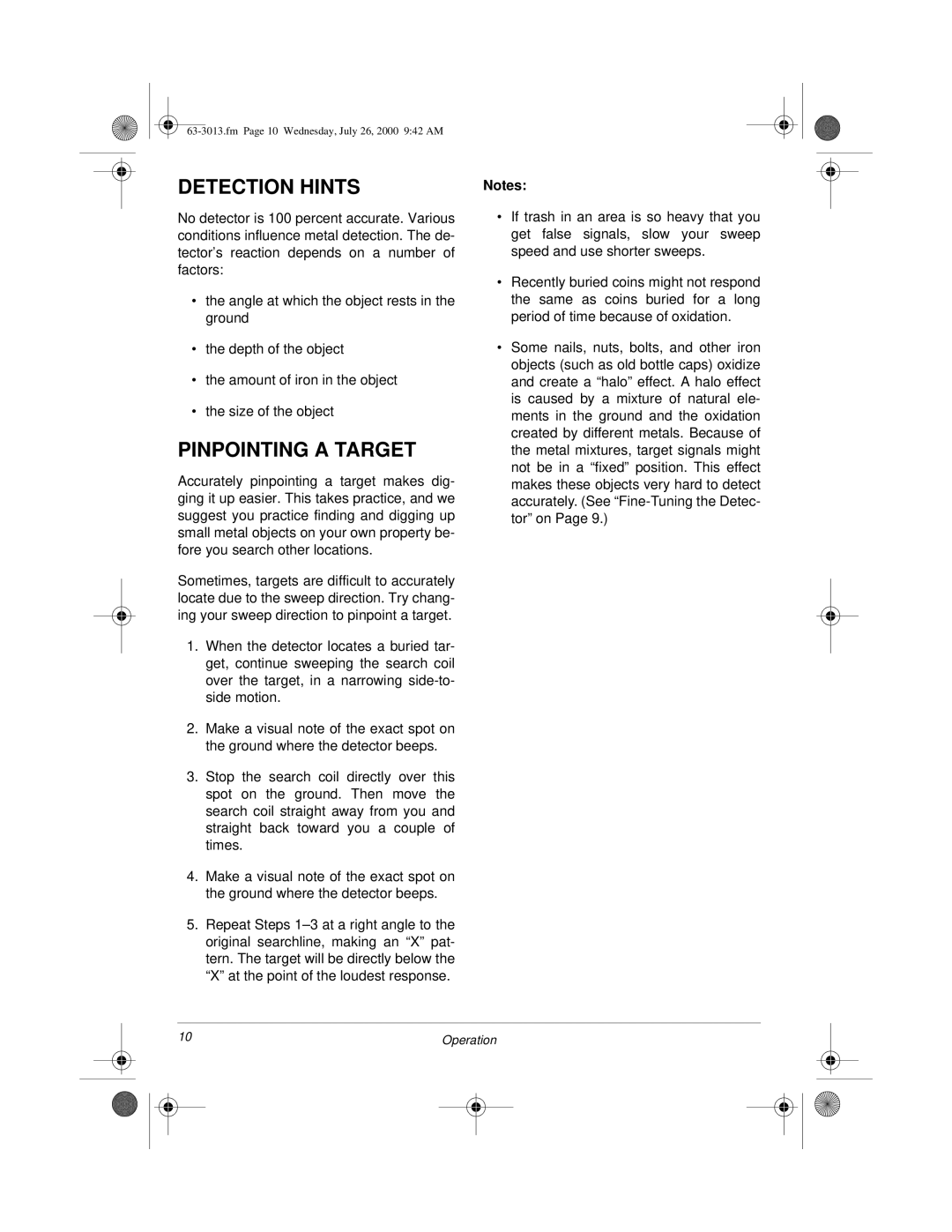
DETECTION HINTS
No detector is 100 percent accurate. Various conditions influence metal detection. The de- tector’s reaction depends on a number of factors:
•the angle at which the object rests in the ground
•the depth of the object
•the amount of iron in the object
•the size of the object
PINPOINTING A TARGET
Accurately pinpointing a target makes dig- ging it up easier. This takes practice, and we suggest you practice finding and digging up small metal objects on your own property be- fore you search other locations.
Sometimes, targets are difficult to accurately locate due to the sweep direction. Try chang- ing your sweep direction to pinpoint a target.
1.When the detector locates a buried tar- get, continue sweeping the search coil over the target, in a narrowing
2.Make a visual note of the exact spot on the ground where the detector beeps.
3.Stop the search coil directly over this spot on the ground. Then move the search coil straight away from you and straight back toward you a couple of times.
4.Make a visual note of the exact spot on the ground where the detector beeps.
5.Repeat Steps
Notes:
•If trash in an area is so heavy that you get false signals, slow your sweep speed and use shorter sweeps.
•Recently buried coins might not respond the same as coins buried for a long period of time because of oxidation.
•Some nails, nuts, bolts, and other iron objects (such as old bottle caps) oxidize and create a “halo” effect. A halo effect is caused by a mixture of natural ele- ments in the ground and the oxidation created by different metals. Because of the metal mixtures, target signals might not be in a “fixed” position. This effect makes these objects very hard to detect accurately. (See
10 |
| Operation | ||
|
|
|
|
|
|
|
|
|
|
|
|
|
|
|
